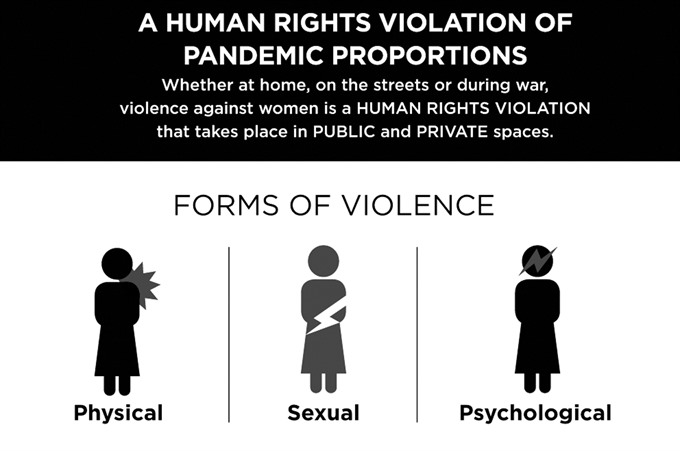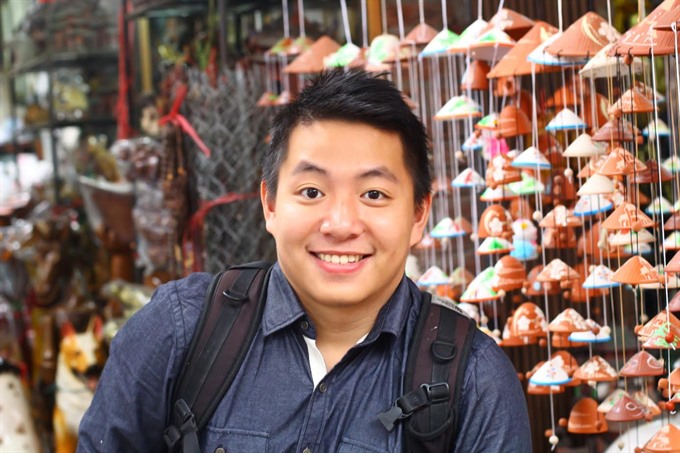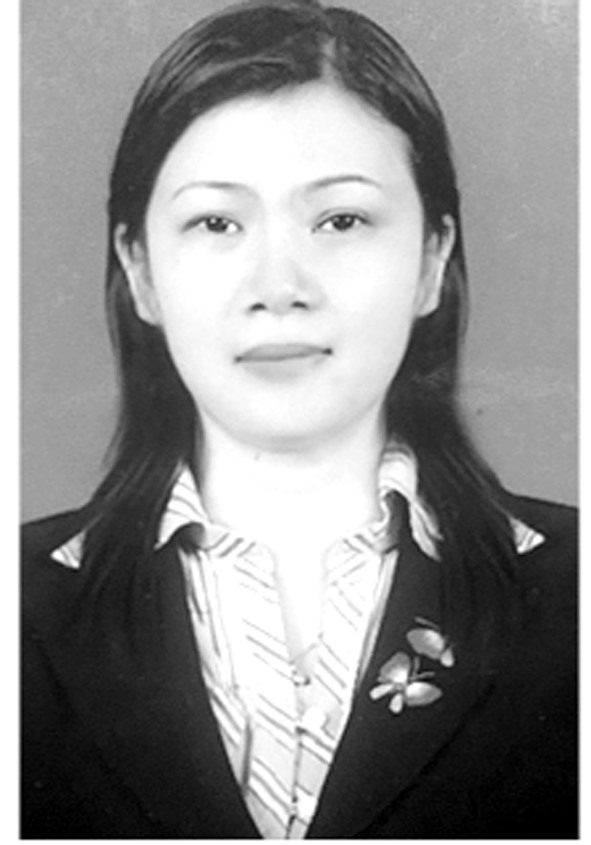 In the Spotlight
In the Spotlight

A perceived increase in violence against women in public places is adding to the gloomy picture of women being discriminated in Việt Nam, activists have warned.
 |
by Mai Khuyên
“Violence against women is unacceptable.”
Such slogans have been chanted around the globe, while governments and researchers have devoted resources to combat violence and promote gender equality campaigns. But the sad truth is that the violence continues.
In every corner of the planet women are the targets of violence, and Việt Nam is no exception.
Aperceived increase in violence against women in public places is adding to the gloomy picture of women being discriminated against in the country, activists have warned.
A number of video clips were shared recently on social networks or reported by media in the past two months about women being attacked in public.
One clip showed a woman being beaten by her husband in front of a cafeteria in central Hà Nội, while another showed two men attacking a girl at Hà Nội’s Nội Bài International Airport on Vietnamese Women’s Day (October 20). The two video clips were followed by several others showing a group of young girls and boys beating girls on streets in a rural area of central Nghệ An Province and HCM City.
“Violence against humans, particularly against women, is escalating in our society,” said Hoàng Giang Sơn, a gender equality campaigner from the Institute for Studies of Society, Economy and Environment (iSEE).
 |
| Hòang Giang Sơn, Human rights activist |
Sơn said there were many reasons for violence against women, including cultural behaviour, a fragile legal system and social prejudices, but lacking education about human rights was among the most important causes.
He added that a person who does not understand about human rights would also not understand or respect the nation’s laws. “An underestimation of human rights could easily lead to an act of violating the laws,” said Sơn.
“Although the clips might have caused anger and disappointment to some, it did not really surprise me,” said Bích Vân a former official from the Research Centre for Family Support and Community Development (RCFSCD).
“They (the clips) are just ‘the straw that broke the camel’s back’ and real proof that women’s rights are seriously being violated,” said the official.
 |
| Bích Vân, Samantha Purse International Relief |
Vân, who is now working on a project for the protection of women’s rights with the Samantha Purse International Relief in Việt Nam, said based upon her own experience, and particularly after more than one year working for the RCFSCD, she now has special insights about women’s rights.
The official had the chance to witness and help in several cases of serious violations of women’s rights when they were attacked and harassed in public spaces.
“Violence against women is not unusual in Việt Nam. It is an act of discrimination against women. However, today such condemned actions have become more serious and are difficult to control,” said Vân.
“My experience working for RCFSCD has helped me find a truth, since in almost all cases the attacked women were rarely ready to react afterwards,” according to Vân.
Vân added that part of her research indicated that many people who witness or hear about an attack consider it a personal affair and never interfere.
“There is not much interference from outsiders when attacks on women occur in public places, and this has hindered the fight against women’s discrimination,” according to Vân.
Vân added that there were several reasons for most cases of such violence, but the most common are that attackers, and even the women who have been attacked, do not possess adequate knowledge about women’s rights.
A second reason is psychological, as women are often frightened of the attackers and would not ask the police or authorities for protection or prosecution of the offenders.
Meanwhile, the iSEE activist said that along with little knowledge about human rights, in many cases of violence against women, both attackers and victims did not understand how to protect their rights.
Attackers often do not recognise the fact that they have violated an individual’s human rights and could be punished by law, while victims do not understand that being attacked means their rights were being violated and they should bring the attackers to court.
Also, lack of support and care for attacked women compounds the causes for an increase of violence against women in Việt Nam, said Sơn.
All of the above opinions were confirmed in a small survey conducted by this writer among a dozen adults whom she met on streets last week, asking: “Have you ever witnessed or heard about violence against women in public places?” The result was surprising: two-thirds of those questioned answered “yes”.
Additionally, almost all of the people who answered “yes” replied “no” when asked: “Did you do something to stop a woman from being attacked?”
Although some refused to answer due to the sensitive nature of the question, the result was proof that violence against women in public places has become an increasingly serious and complicated issue.
Shoko Ishikawa, UN Women Country Representative in Việt Nam, agrees. She says women and girls experience high levels of violence in public spaces, although this is not yet fully understood and acknowledged.
 |
| Shoko Ishikawa, UN Women Việt Nam Country Representative |
Shoko cited a 2014 survey which revealed that nine in 10 women in HCM City, and eight in 10 women in Ha Noi have experienced violence in a public place and 16 per cent of them experience sexual harassment on a regular basis.
Yet, of those that had experienced sexual harassment, Shoko said only 1.9 per cent said they would seek assistance from authorities, and of all bystanders who witnessed harassment, 65 per cent said they would not interfere.
“Vulnerable women, particularly young women, women with disabilities, migrant women, female and transgender sex workers, LBTI women, and ethnic minority women, are at greater risk of violence due to intersectional discrimination resulting from their particular vulnerabilities,” said the UN official.
“Despite affecting thousands of women and girls in Việt Nam, sexual violence in public spaces has long been tolerated, and there are gaps in evidence, policies, laws and awareness of violence against women beyond domestic violence,” said Shoko.
Hoàng Anh Thơ from the Việt Nam Women’s Union, said violence against women is a daily occurrence for many women and girls in the country.
 |
| Hoàng Anh Thơ, Việt Nam Women’s Union |
In citing some of the reasons for a growing frequency of such violence, she included a lack of awareness, human aggressiveness, selfish behaviour and the character of some men who seek to dominate others, including women.
She also advised women to control themselves when they are faced with aggressive men, saying that aggressive reaction on the part of some women to male attacks compounds the problem in Viet Nam.
In general, Thơ said, people in Viet Nam do not say "sorry" or "excuse me" often enough, a cultural shortcoming for society as a whole.
“Sometimes, just the word ‘sorry’ can help women avoid being hit or attacked,” said Thơ.
In addition, women’s knowledge about preventing violence remains low. Most of the attacked women were not ready to complain to authorities or police, while attitudes and reactions of some communities were either indifferent or negative and thus did not help prevent violence.
“This absolutely hinders the fight against violence, and should be completely changed,” said Thơ.
Moreover, men should be held responsible for violence against women, because in almost all cases, the assailants were men, according to the WU official.
Men should be encouraged to participate in campaigns or even commit to help in protecting women from violence, Thơ said.
The official presented a variety of activities pioneered by the Việt Nam Women Union to protect women’s rights, including the establishment of many “Houses of Peace” and shelters across the country that allow women to hide from attackers.
The union also co-operated with local authorities to prevent violence against women, particularly those in underprivileged regions such as mountains and remote areas.
Shoko agreed with Tho, saying more needs to be done to address patriarchal attitudes and deep-rooted gender stereotypes held by Government officials, members of mass organisations, the general public, and the media.
“The media plays an important role in shaping community understanding of social issues, and yet many media outlets in Việt Nam still project and perpetuate stereotyped views of women and men,” according to Shoko.
In some cases of violence against women, police, healthcare professionals and community leaders blame women for causing men to be violent, and the only assistance they provide is to attempt to negotiate between attackers and their victims for some compensation or even for forgiveness. -VNS
Only 12% of reported cases result in prosecution In a statement to Việt Nam News last week, UN Women said 58 per cent of women experienced at least one type of violence at some point in their lives. Further, the frequency, mostly of domestic violence, was estimated to cost 3.2 per cent of Việt Nam’s GDP by calculating the total productivity losses and potential opportunity costs. At the same time, women who experience domestic violence earn 35 per cent less, on average, than women who experience no violence. Conviction rates of violent offenders against women are extremely low. While 43 per cent of violent crimes come to the attention of police, only 12 per cent of reported cases result in criminal charges, and only 1 per cent of reported cases lead to convictions. The overuse of reconciliation measures limit women’s capacities to seek formal protection, redress or justice, leaving survivors exposed to repeated violence during their lifetimes. Beyond violence that includes domestic violence, there are gaps in evidence, policies, laws and awareness about other forms of VAW, such as dating violence, cyber violence and violence in public spaces. Women continue to face discrimination in both public and private spheres, ranging from women’s low political representation, unequal access to educational and economic opportunities, violence and lack of access to justice. The root cause of gender-based discrimination is the prevailing patriarchal attitudes and gender stereotypes that privilege men over women. These negative social norms held by law and policy makers, media, and the general public continue to accept discrimination against women and girls. It remains common for violence survivors to be blamed for causing their partners to be violent. — VNS |




